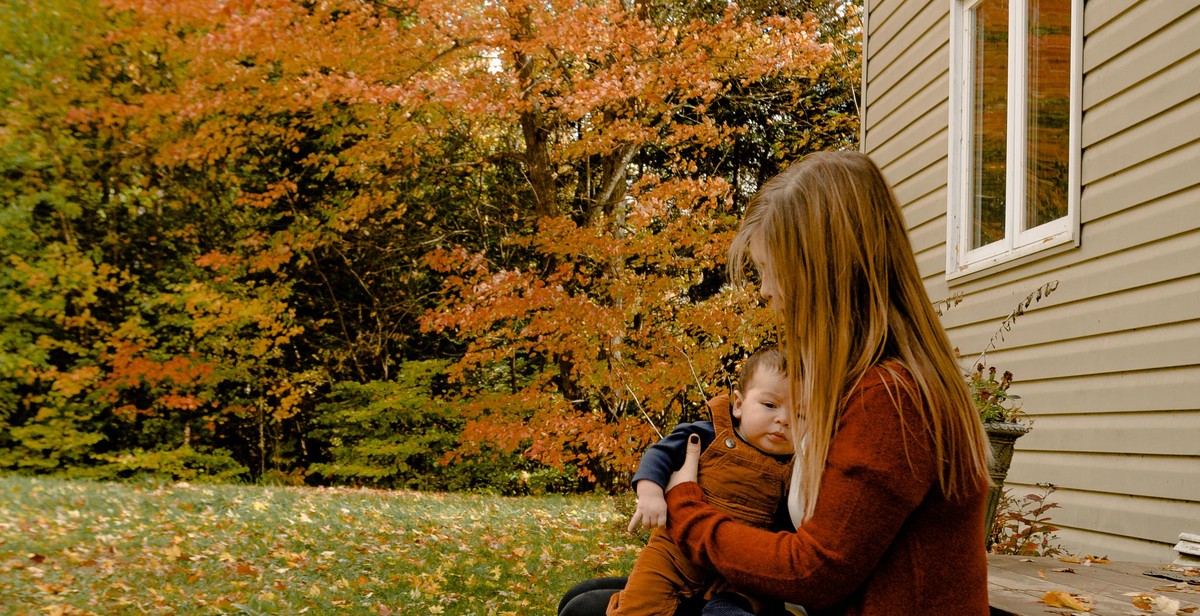How to Love Without Losing Yourself: The Balance of Self and Unity
Love is a beautiful thing, but it can also be complicated. One of the biggest challenges in any relationship is finding the balance between being true to yourself and being a part of a couple. Losing yourself in a relationship can happen easily, but it’s important to maintain your individuality and sense of self. In this article, we will explore how to love without losing yourself and the importance of finding a balance between self and unity.
The Importance of Self-Love
Before you can love someone else, you must first love yourself. Self-love is the foundation of any healthy relationship. It’s important to have a strong sense of self, to know your boundaries, and to honor your values. When you have a healthy relationship with yourself, you are better equipped to have healthy relationships with others.
The Dangers of Losing Yourself in a Relationship
When you lose yourself in a relationship, you may find yourself compromising your values and beliefs to please your partner. You may also neglect your own needs and desires, which can lead to resentment and unhappiness. It’s important to maintain your individuality and sense of self in a relationship to avoid losing yourself completely.
The Balance of Self and Unity
The key to loving without losing yourself is to find a balance between self and unity. This means maintaining your individuality while also being a part of a couple. It’s important to communicate your needs and desires with your partner and to compromise when necessary. Remember that a healthy relationship is a partnership, not a dictatorship.
In the following sections, we will explore specific strategies for maintaining the balance of self and unity in a relationship. These strategies will help you to love without losing yourself and to create a healthy, happy, and fulfilling relationship with your partner.

Understanding the Balance of Self and Unity
Love is a beautiful emotion that can make us feel alive, but it can also be a double-edged sword. When we fall in love, we often forget about ourselves and focus solely on our partners. This can lead to losing our sense of self, which can be damaging in the long run. However, it is equally important to maintain unity in a relationship. So, how do we find the balance between self and unity?
What is Self?
Self is the core of our being. It is our identity, our beliefs, our values, our likes, and dislikes. It is what makes us unique and special. When we lose ourselves in a relationship, we forget about our own needs and desires. We start to mold ourselves into what our partners want, and in the process, we lose sight of who we are.
It is important to maintain a strong sense of self in a relationship. This means having the courage to express our own opinions and desires, even if they differ from our partners. It means setting boundaries and not compromising on our values. It means pursuing our own interests and hobbies, even if our partners do not share the same passion.
What is Unity?
Unity is the bond that connects two people in a relationship. It is the feeling of oneness, of being in sync with each other. It is the ability to share experiences, emotions, and thoughts. Unity is what makes a relationship strong and long-lasting.
However, unity does not mean losing our sense of self. It is important to remember that we are two separate individuals with our own identities. Unity means respecting each other’s differences and finding ways to compromise and collaborate. It means communicating openly and honestly, and making decisions together.
Why is Finding the Balance Important?
Finding the balance between self and unity is crucial for a healthy and fulfilling relationship. When we lose ourselves in a relationship, we become dependent on our partners for our happiness. This can lead to feelings of resentment and frustration when our partners do not meet our expectations.
On the other hand, when we focus solely on ourselves and neglect our partners, we risk losing the unity in our relationship. This can lead to feelings of loneliness and disconnection.
The key to a successful relationship is finding the balance between self and unity. It means maintaining our sense of self while also building a strong connection with our partners. It means being able to compromise and collaborate while also respecting our own boundaries and values.
Overall, finding the balance between self and unity is not easy, but it is essential for a healthy and happy relationship. It requires communication, self-awareness, and a willingness to grow together. By prioritizing both our own needs and the needs of our partners, we can create a relationship that is strong, loving, and fulfilling.

Steps to Love Without Losing Yourself
Loving someone can be a beautiful experience, but it can also be challenging, especially when you feel like you’re losing yourself in the process. Here are some practical steps to help you maintain a healthy balance between your own needs and the needs of your partner:
1. Know Yourself
Before you can love someone else without losing yourself, you need to know who you are and what you want. Take some time to reflect on your values, goals, and interests. Knowing yourself will help you set healthy boundaries and communicate your needs effectively.
2. Communicate
Communication is key to any healthy relationship. Be honest and open with your partner about your feelings, concerns, and needs. Listen actively and try to understand their perspective as well. Communication can help you find a balance between your own needs and the needs of your partner.
3. Set Boundaries
Setting boundaries is crucial to maintaining a sense of self in a relationship. Be clear about what you’re comfortable with and what you’re not. Respect your own boundaries and those of your partner. Setting boundaries can help you avoid feeling overwhelmed or resentful.
4. Make Time for Yourself
Make sure to carve out time for yourself to do the things you enjoy. This can help you recharge and maintain a sense of independence. It’s important to have your own hobbies, interests, and friends outside of the relationship.
5. Compromise
Compromise is necessary in any relationship. Find a middle ground that works for both you and your partner. Be willing to give a little and take a little. Compromise can help you find a balance between your own needs and the needs of your partner.
6. Focus on the Positive
It’s easy to get caught up in the negative aspects of a relationship, but focusing on the positive can help you maintain a healthy balance. Make a conscious effort to appreciate the good things about your partner and your relationship. This can help you stay grounded and grateful.
7. Practice Gratitude
Expressing gratitude can help you maintain a positive outlook and deepen your connection with your partner. Take time to appreciate the things your partner does for you and express your gratitude. This can help you both feel valued and loved.
8. Seek Professional Help if Needed
If you’re struggling to maintain a healthy balance in your relationship, don’t hesitate to seek professional help. A therapist or counselor can help you work through any issues and develop healthy communication and coping skills.
By following these steps, you can love without losing yourself and maintain a healthy, balanced relationship with your partner.

Conclusion
Learning how to love without losing yourself is crucial for maintaining a healthy and fulfilling relationship. It requires a balance of self and unity, and a commitment to both individual growth and the growth of the relationship.
First and foremost, it’s important to prioritize your own well-being and happiness. This means setting boundaries, maintaining your own hobbies and interests, and communicating your needs and desires with your partner. When you prioritize yourself, you bring a sense of confidence and independence to the relationship.
However, it’s equally important to foster unity and connection with your partner. This means actively listening to their needs and desires, compromising, and working together towards shared goals. When you prioritize the relationship, you create a sense of trust and intimacy that can deepen over time.
Remember, learning how to love without losing yourself is a journey. It takes time, patience, and a willingness to grow and adapt. But with commitment and effort, it’s possible to create a loving and fulfilling partnership that allows both partners to thrive.
- Set boundaries and prioritize your own well-being
- Communicate your needs and desires with your partner
- Foster unity and connection through active listening and compromise
- Commit to individual growth and the growth of the relationship
By following these principles, you can create a relationship that is both loving and empowering, allowing you to be your best self while also sharing your life with someone special.
